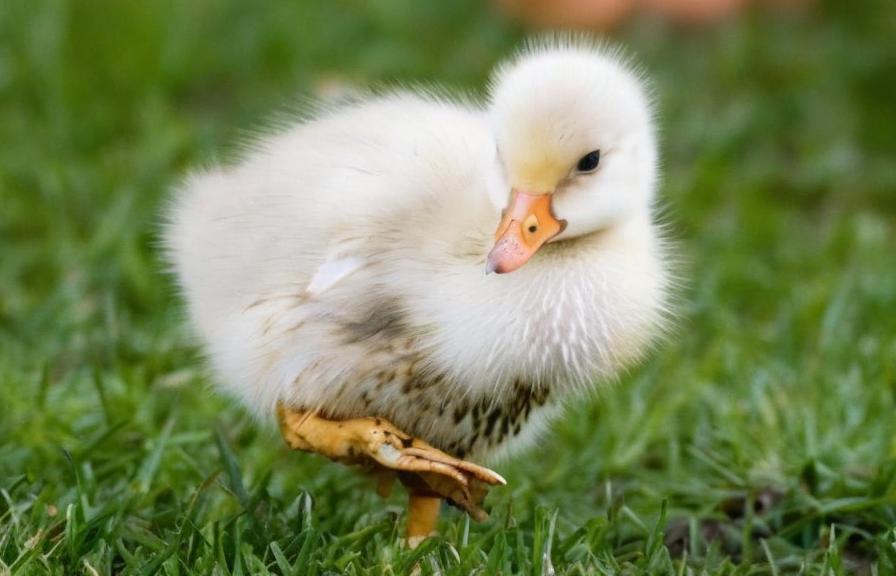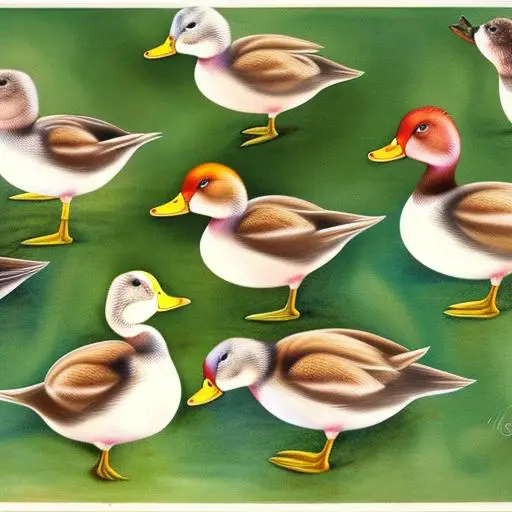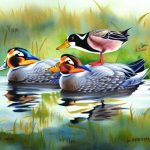Baby duck breeds are a popular choice for many people looking to add a unique and adorable pet to their lives. These small, fluffy creatures are known for their charming personalities and gentle nature, making them a great addition to any household. Baby ducks come in a variety of breeds, each with its own distinct characteristics and traits. From the classic Pekin duck to the colorful and vibrant Mandarin duck, there is a baby duck breed to suit every preference and lifestyle. Whether you are looking for a pet that is easy to care for, or one that will stand out in a crowd, baby duck breeds offer a wide range of options for prospective pet owners.
Key Takeaways
- Baby duck breeds come in a variety of sizes, colors, and temperaments, making them a popular choice for backyard enthusiasts and hobby farmers.
- Popular baby duck breeds include the Pekin, Mallard, Khaki Campbell, and Runner, each with their own unique characteristics and traits.
- Raising and caring for baby ducks involves providing a warm and safe environment, proper nutrition, and access to water for swimming and grooming.
- Differences in baby duck breeds can include egg production, foraging abilities, and overall size and weight, making it important to research and choose the right breed for your needs.
- When choosing the right baby duck breed for you, consider factors such as space requirements, climate suitability, and desired egg production or meat quality.
Popular Baby Duck Breeds
There are several popular baby duck breeds that are commonly kept as pets. One of the most well-known breeds is the Pekin duck, which is easily recognizable by its pure white feathers and bright orange bill. Pekin ducks are known for their friendly and sociable nature, making them a great choice for families with children or other pets. Another popular breed is the Mallard duck, which is known for its striking green head and vibrant plumage. Mallard ducks are highly adaptable and can thrive in a variety of environments, making them a versatile choice for pet owners. Other popular baby duck breeds include the Khaki Campbell, Rouen, and Indian Runner ducks, each with their own unique characteristics and traits.
Raising and Caring for Baby Ducks
Raising and caring for baby ducks requires careful attention to their specific needs and requirements. Baby ducks need a warm and secure environment to thrive, so it is important to provide them with a suitable brooder or enclosure that is free from drafts and predators. Additionally, baby ducks require access to clean water for swimming and grooming, as well as a balanced diet that includes commercial duck feed and fresh greens. It is also important to provide baby ducks with plenty of space to exercise and explore, as well as regular veterinary care to ensure their health and well-being. With proper care and attention, baby ducks can grow into happy and healthy adult ducks that will bring joy and companionship to their owners for many years to come.
Differences in Baby Duck Breeds
While all baby duck breeds share some common characteristics, such as their love of water and social nature, there are also some distinct differences between breeds. For example, some breeds, like the Pekin duck, are known for their calm and friendly demeanor, while others, like the Indian Runner duck, are more active and energetic. Additionally, different breeds may have specific dietary or housing requirements that need to be taken into consideration when caring for them. Some breeds may also have unique physical traits or colorations that make them stand out from the crowd. Understanding these differences can help prospective pet owners choose the right baby duck breed for their lifestyle and preferences.
Choosing the Right Baby Duck Breed for You
When choosing the right baby duck breed for you, it is important to consider your lifestyle, living situation, and personal preferences. If you have limited space or live in an urban environment, you may want to consider a smaller breed, such as the Indian Runner or Khaki Campbell duck. If you have children or other pets, you may want to choose a breed that is known for its friendly and sociable nature, such as the Pekin or Mallard duck. Additionally, it is important to consider the specific care requirements of each breed, such as their dietary needs and housing preferences. By taking these factors into consideration, you can choose a baby duck breed that will be a perfect fit for your home and lifestyle.
Baby Duck Breeds as Pets
Baby duck breeds make wonderful pets for people of all ages. Their gentle nature and charming personalities make them a joy to have around, and their unique traits and characteristics make them stand out from other types of pets. Baby ducks are also highly adaptable and can thrive in a variety of environments, making them a great choice for pet owners with different living situations. Additionally, baby ducks are known for their intelligence and social nature, making them great companions for people who are looking for a pet that will provide them with hours of entertainment and companionship. Whether you are looking for a pet that is easy to care for, or one that will bring joy and laughter to your life, baby duck breeds offer a wide range of options for prospective pet owners.
Baby Duck Breeds and Their Unique Qualities

In conclusion, baby duck breeds are a popular choice for people looking to add a unique and charming pet to their lives. With their gentle nature, striking appearances, and sociable personalities, baby ducks make wonderful companions for people of all ages. Whether you are looking for a pet that is easy to care for, or one that will stand out in a crowd, there is a baby duck breed to suit every preference and lifestyle. By understanding the specific needs and characteristics of different baby duck breeds, prospective pet owners can choose the right breed for their home and family. With proper care and attention, baby ducks can grow into happy and healthy adult ducks that will bring joy and companionship to their owners for many years to come.
If you’re interested in learning more about the mating season of ducks and how to breed them, you should check out the article “When is Duck Mating Season?” on PoultryWizard.com. This informative piece provides valuable insights into the breeding habits of ducks and offers helpful tips for successful duck breeding. Whether you’re a novice or experienced breeder, this article is a must-read for anyone looking to raise healthy and happy ducklings. (source)
FAQs
What are the different baby duck breeds?
There are many different baby duck breeds, including the Pekin, Mallard, Rouen, Khaki Campbell, and Muscovy, among others.
What are the characteristics of baby duck breeds?
Baby duck breeds can vary in size, color, and temperament. Some breeds are known for their egg-laying abilities, while others are prized for their meat.
How do you care for baby duck breeds?
Caring for baby duck breeds involves providing them with a suitable living environment, proper nutrition, and access to water for swimming and bathing. It’s also important to protect them from predators and provide them with veterinary care as needed.
What do baby duck breeds eat?
Baby duck breeds typically eat a diet of commercial duck feed, supplemented with fresh greens, insects, and other treats. It’s important to provide them with a balanced diet to ensure their health and well-being.
What are some common health issues for baby duck breeds?
Common health issues for baby duck breeds include respiratory infections, bumblefoot, and parasites. It’s important to monitor their health closely and seek veterinary care if any issues arise.
How long do baby duck breeds live?
The lifespan of baby duck breeds can vary depending on the breed and their living conditions. On average, ducks can live 5-10 years, but some may live longer with proper care.
Meet Walter, the feathered-friend fanatic of Florida! Nestled in the sunshine state, Walter struts through life with his feathered companions, clucking his way to happiness. With a coop that’s fancier than a five-star hotel, he’s the Don Juan of the chicken world. When he’s not teaching his hens to do the cha-cha, you’ll find him in a heated debate with his prized rooster, Sir Clucks-a-Lot. Walter’s poultry passion is no yolk; he’s the sunny-side-up guy you never knew you needed in your flock of friends!







